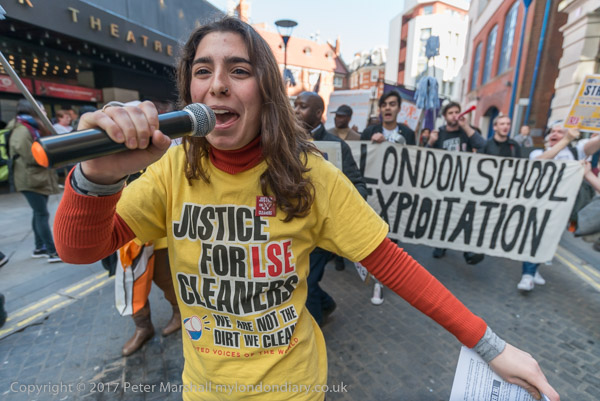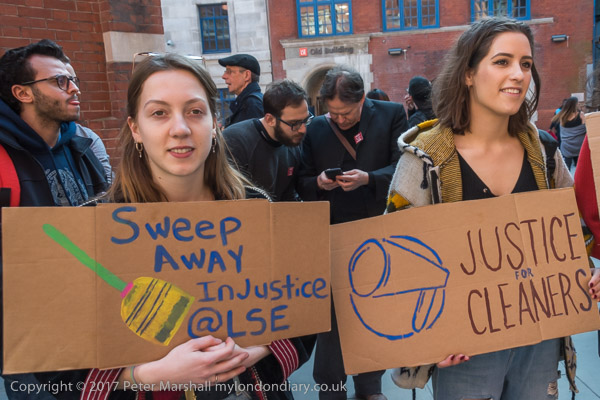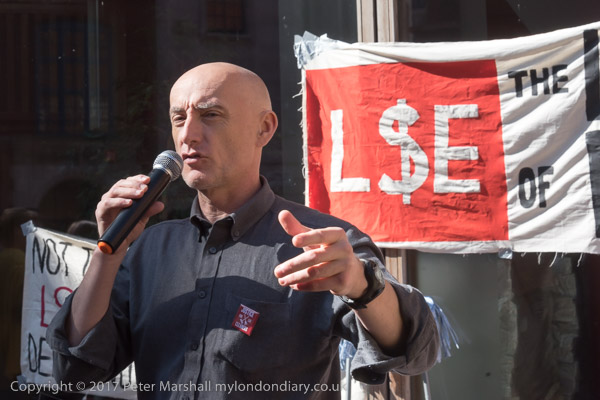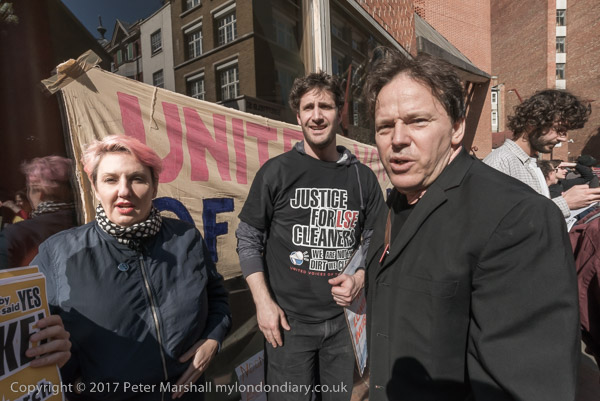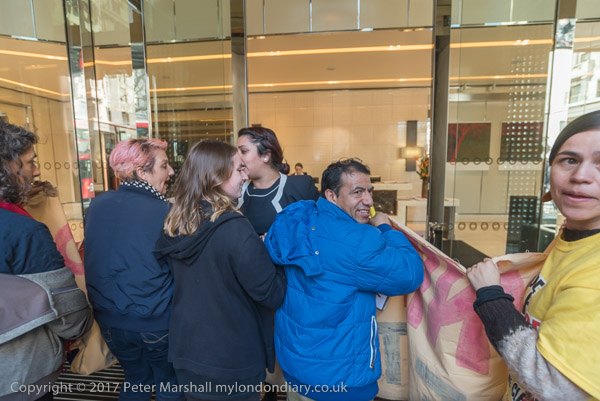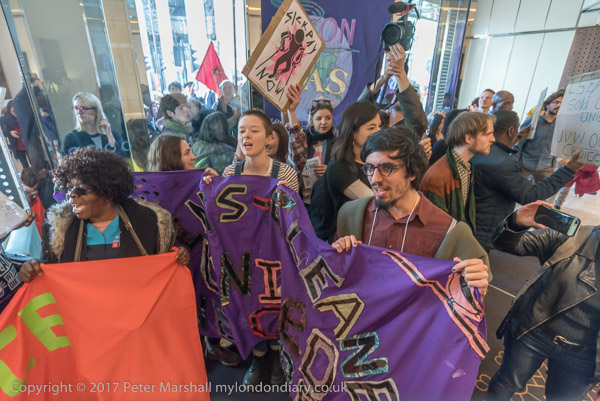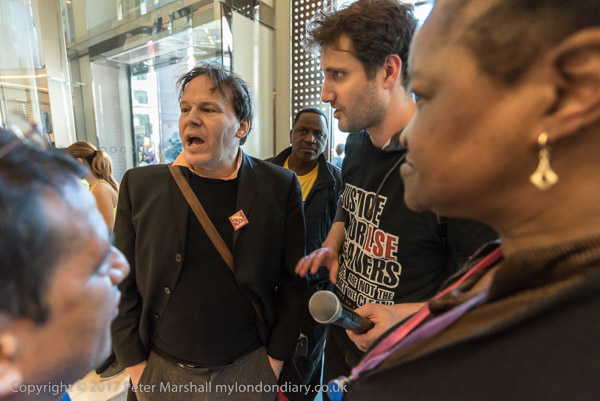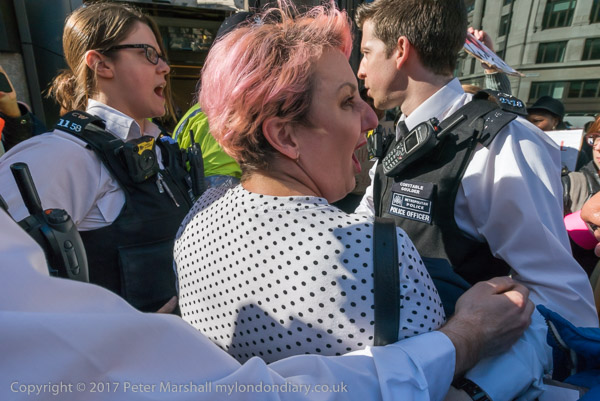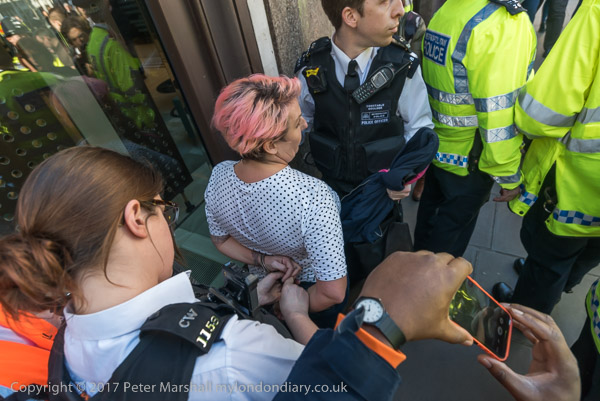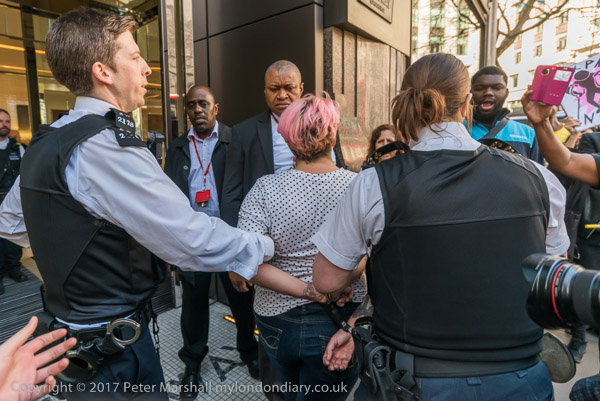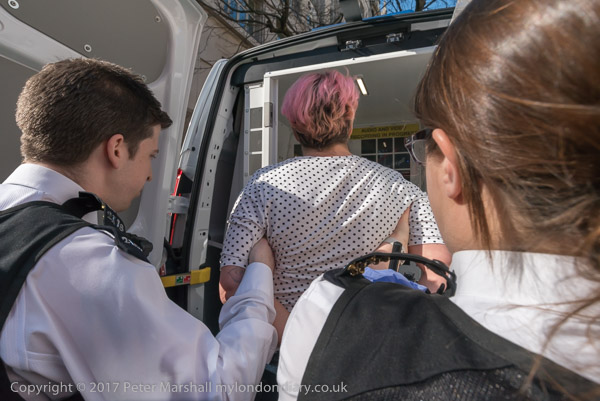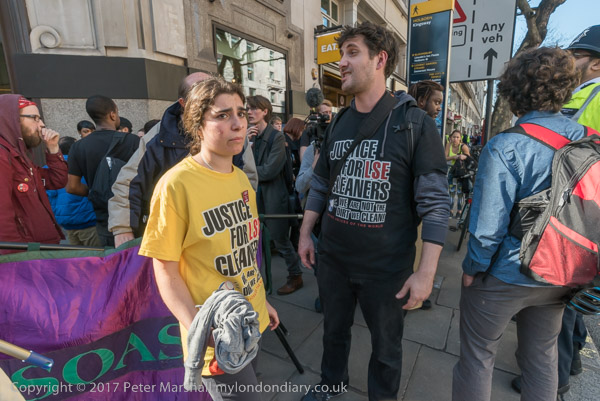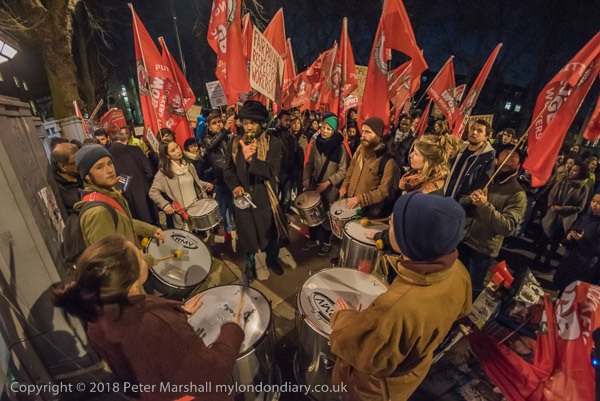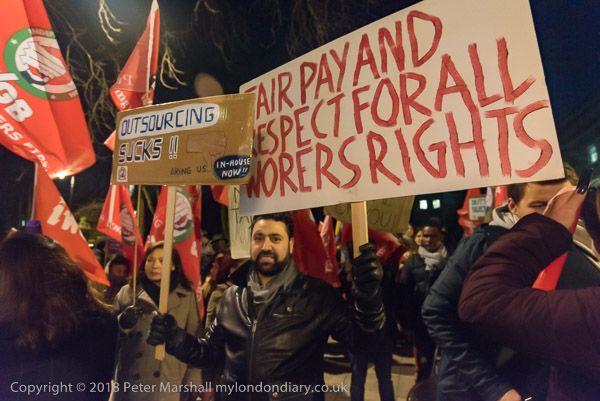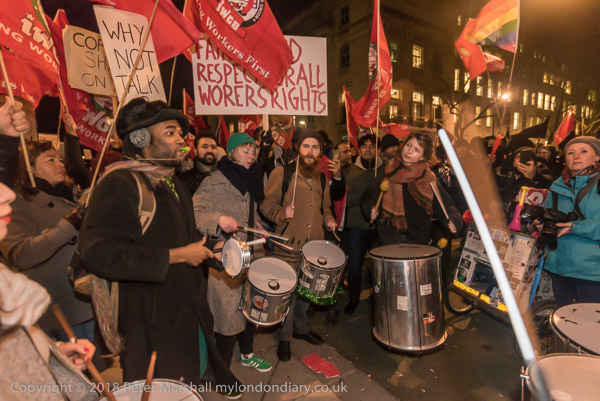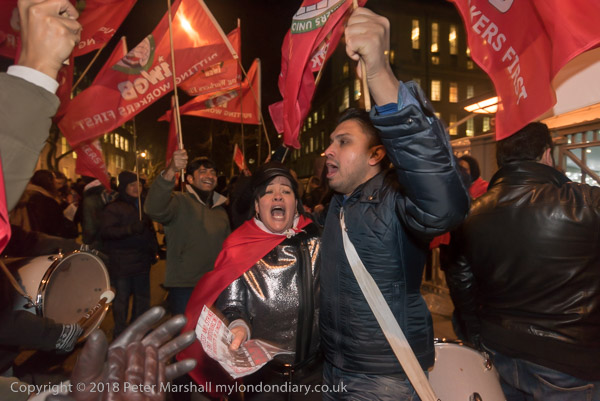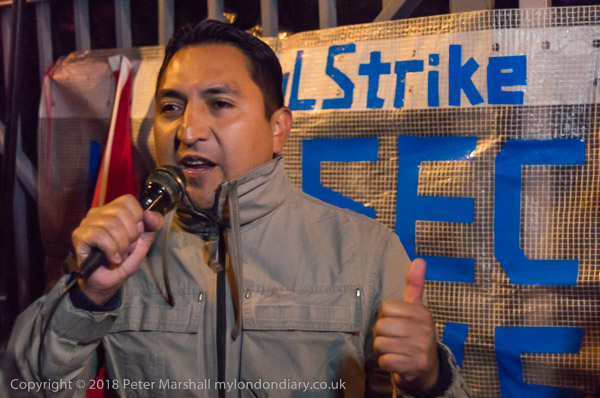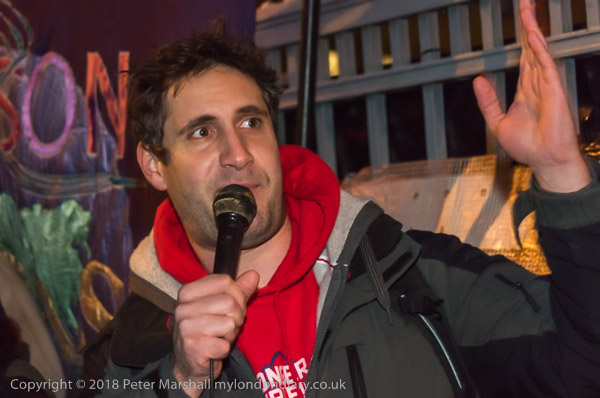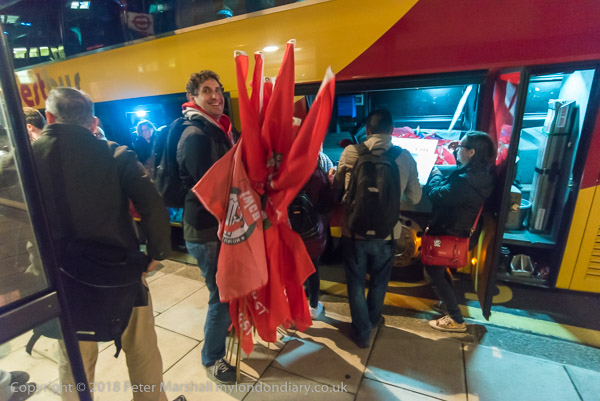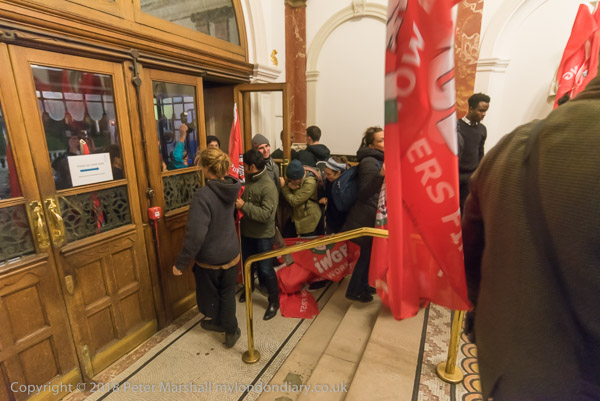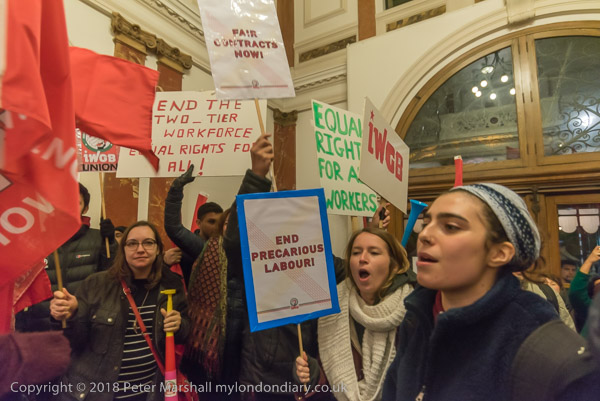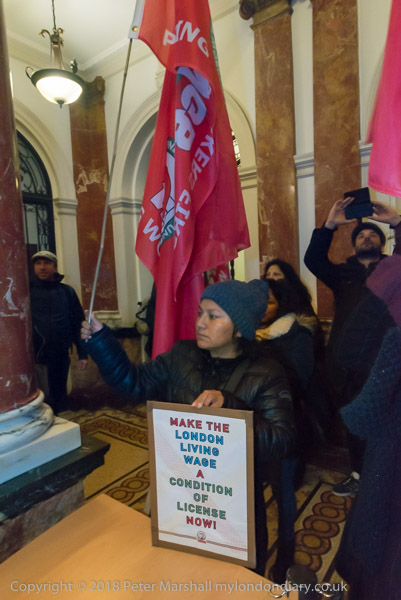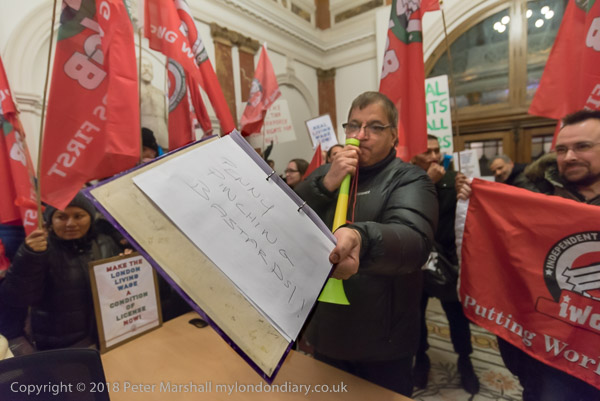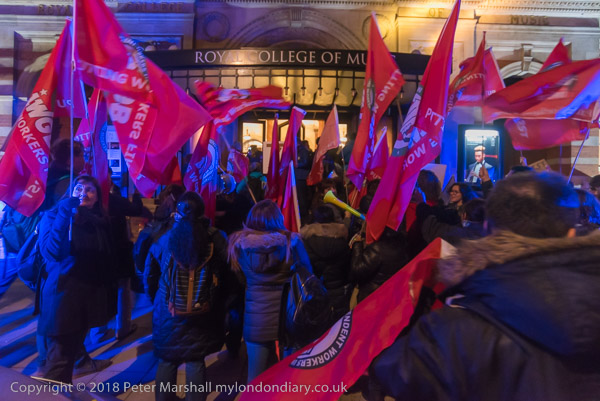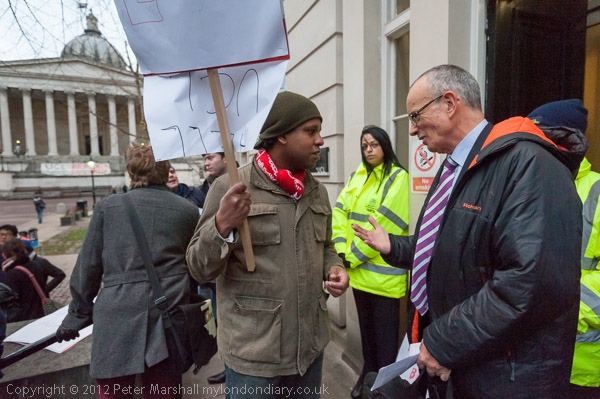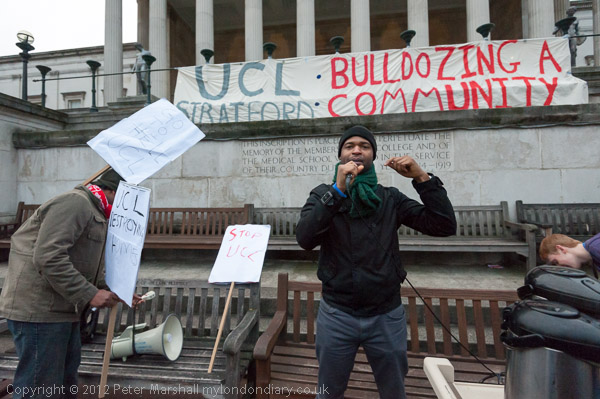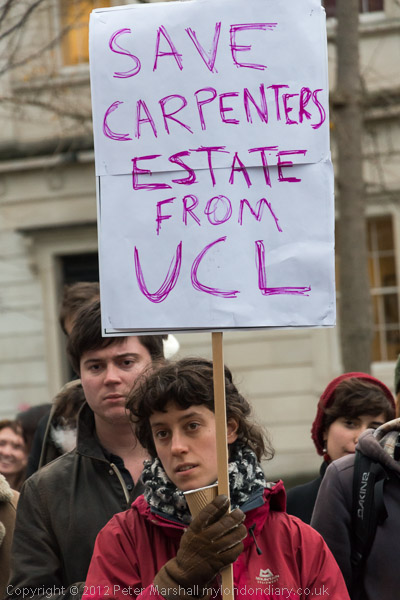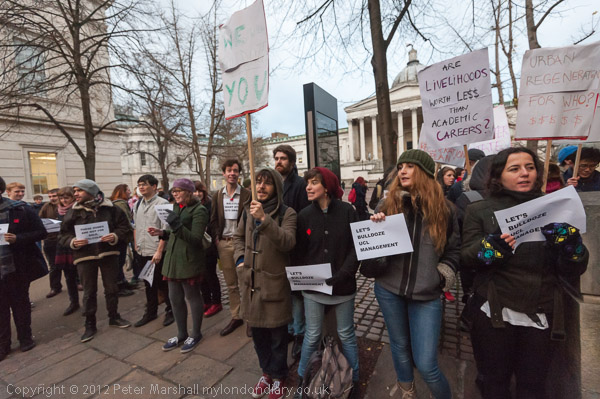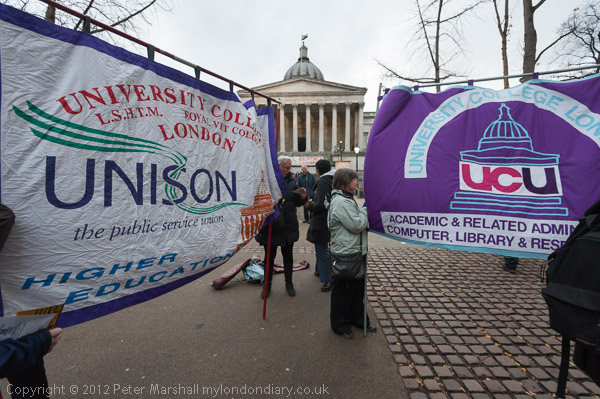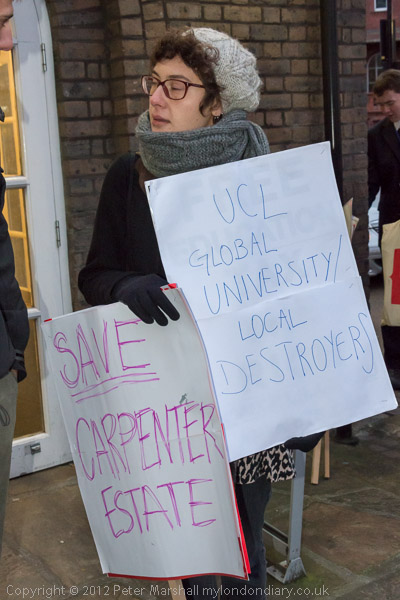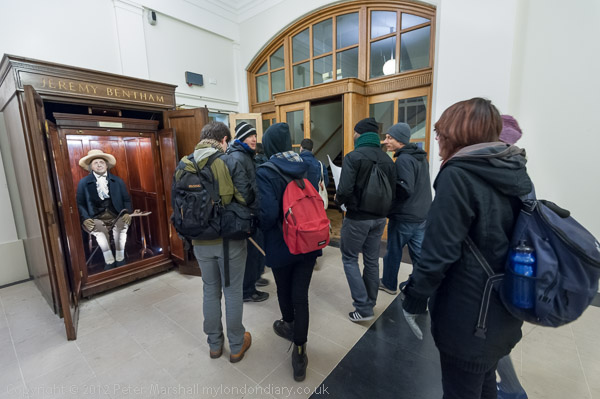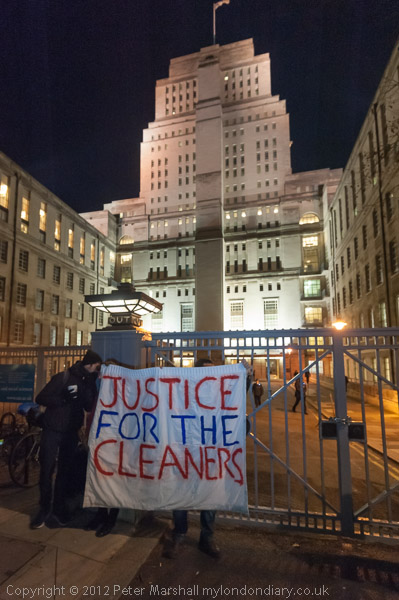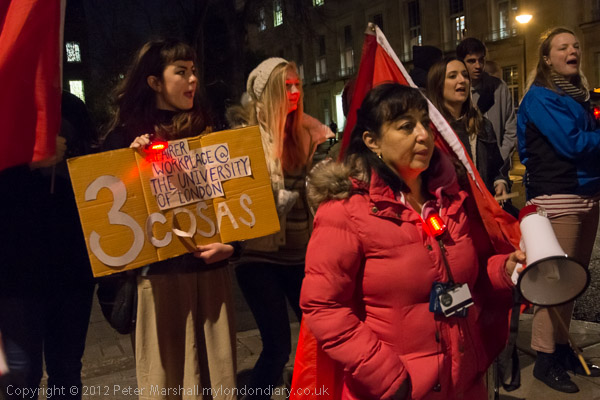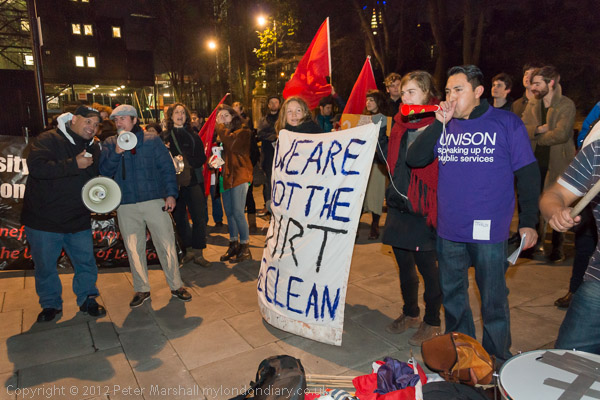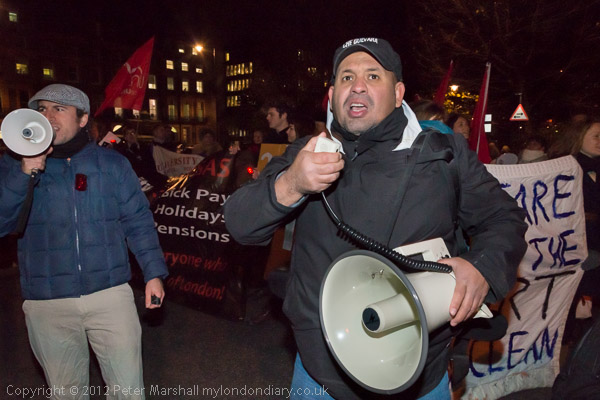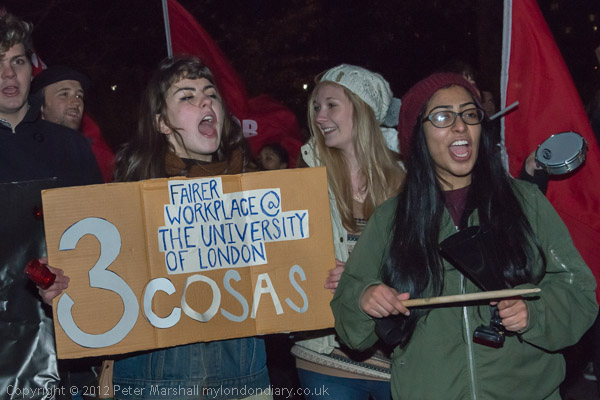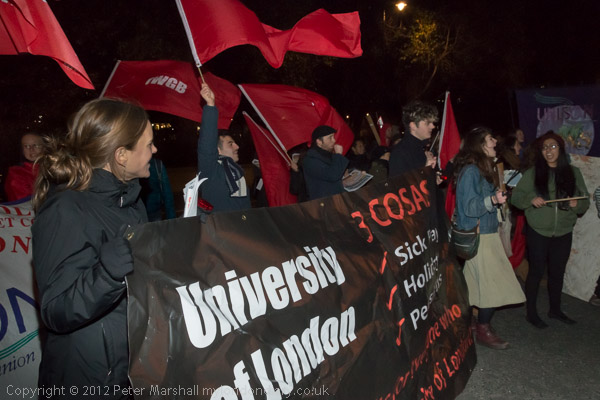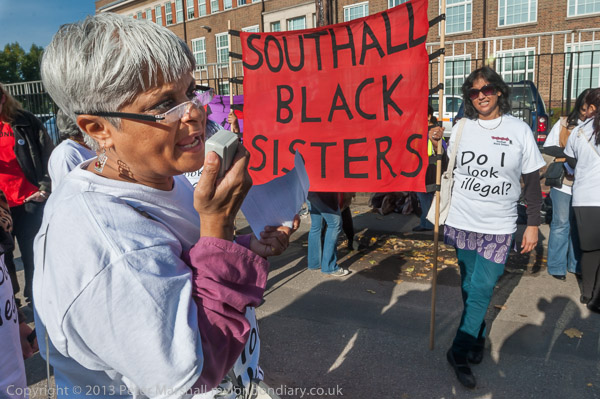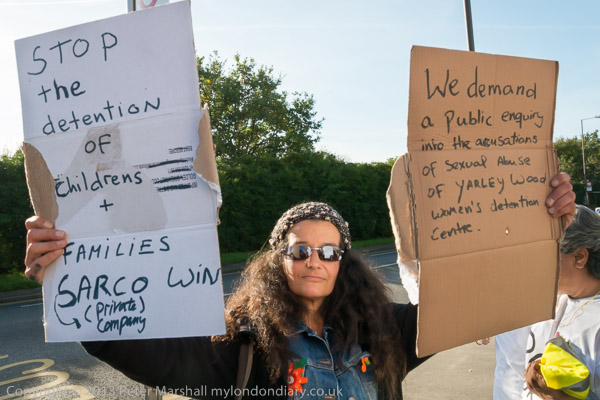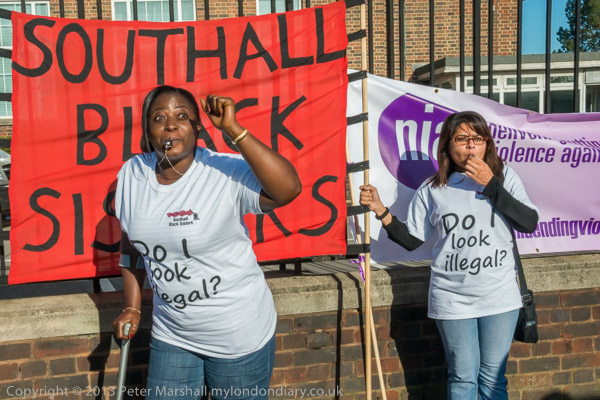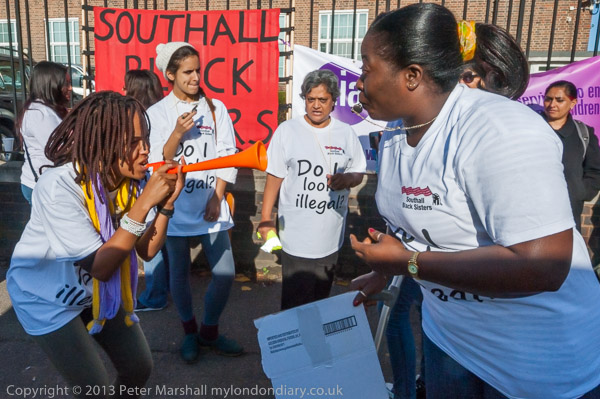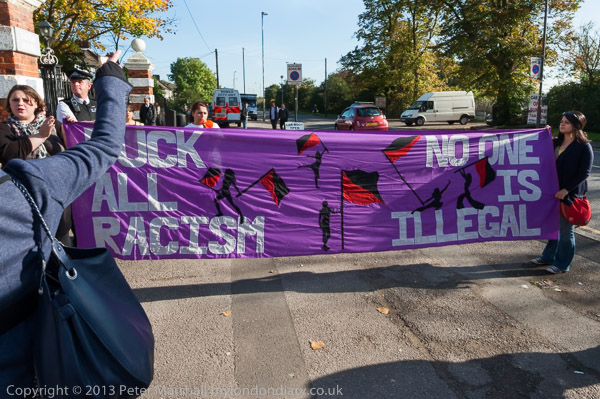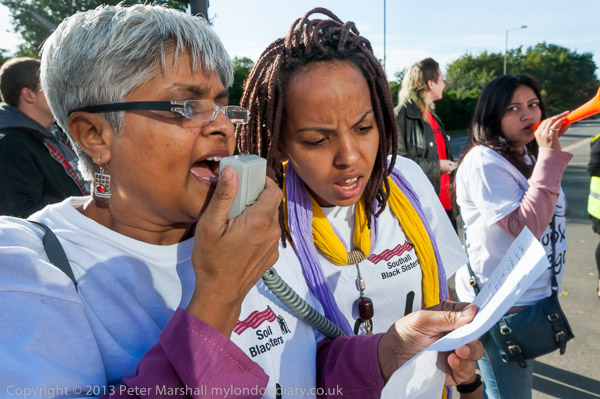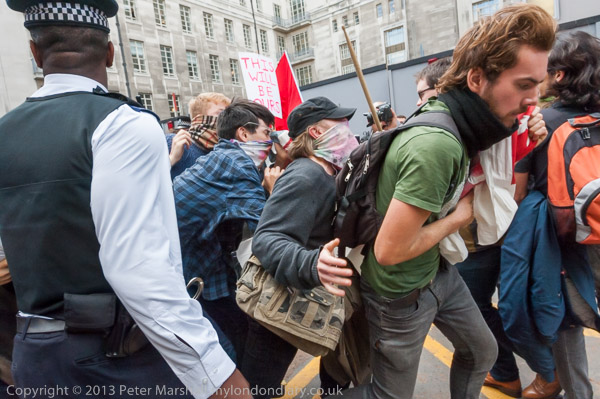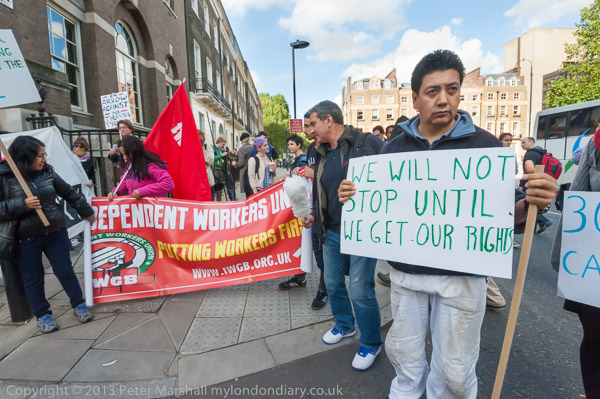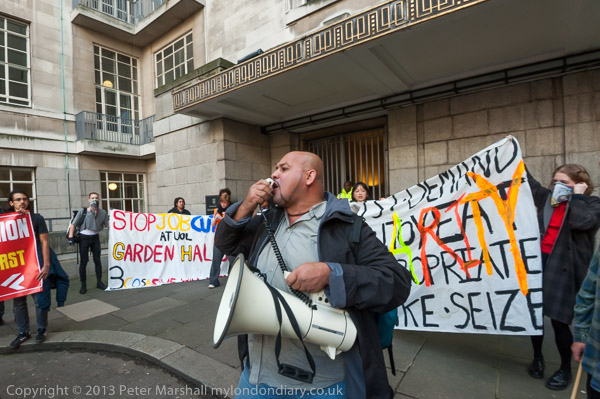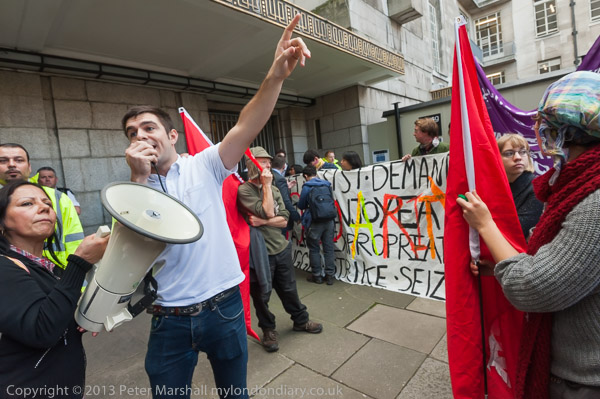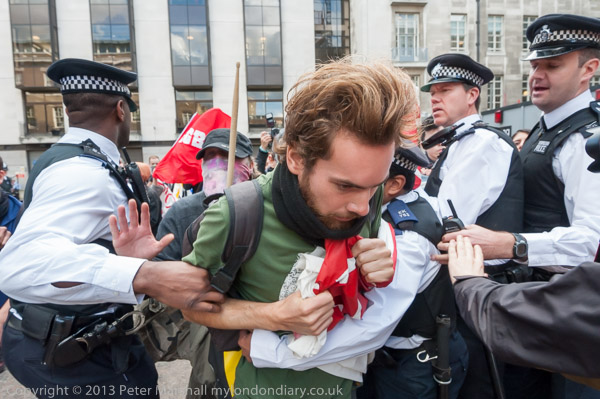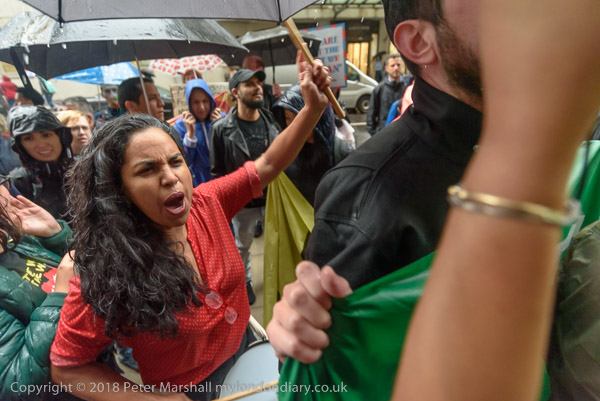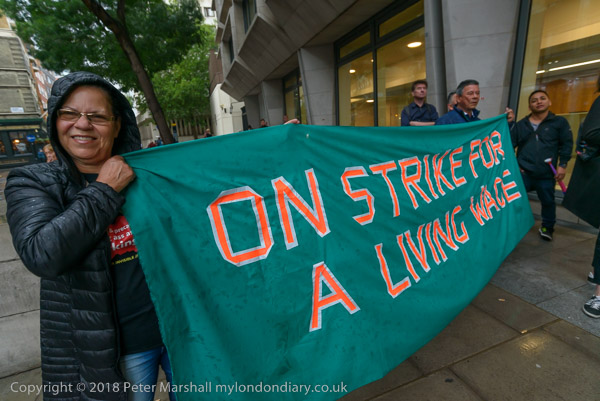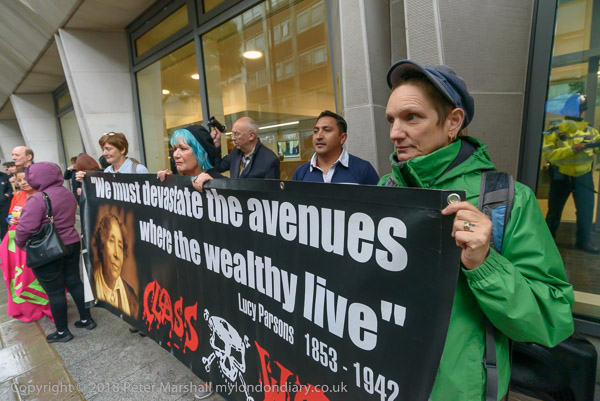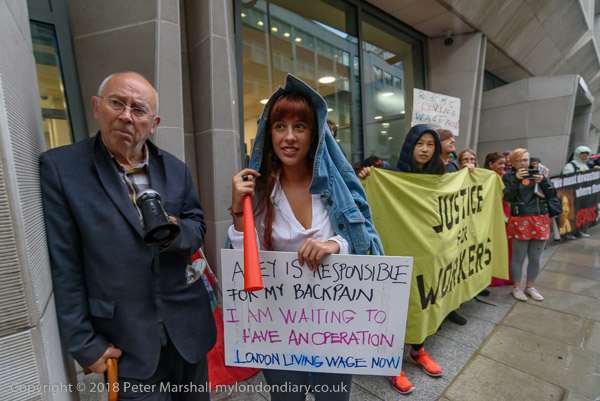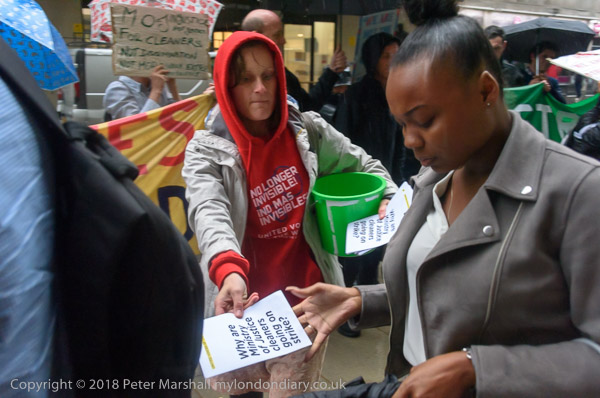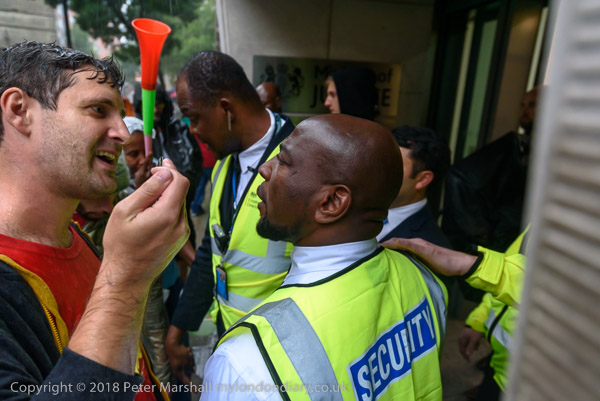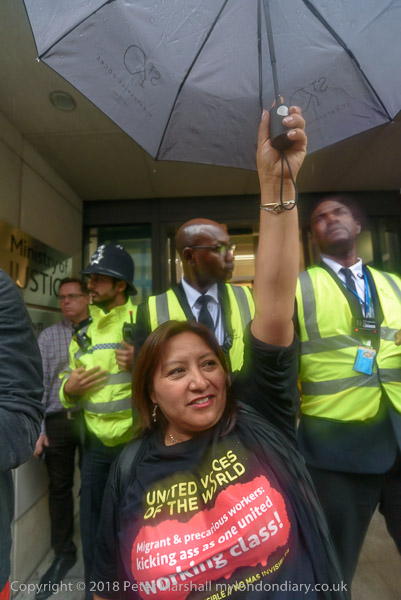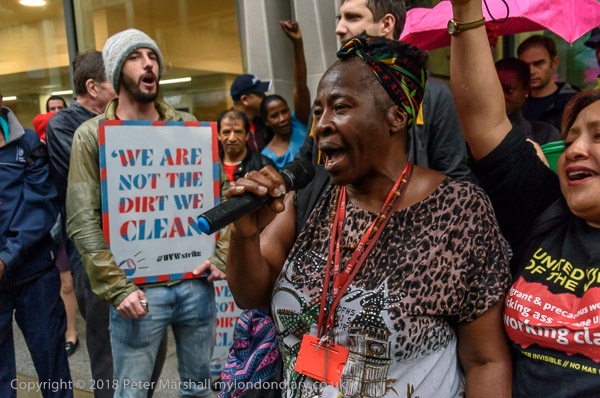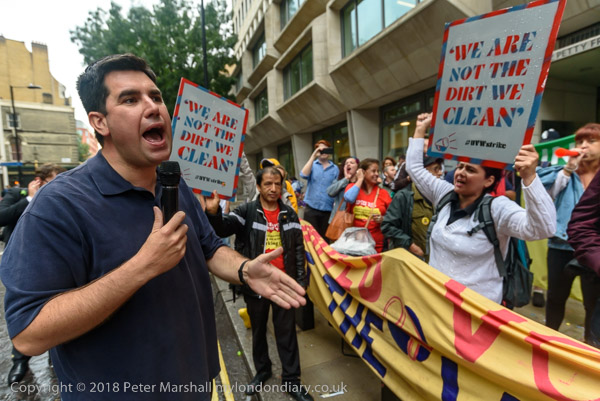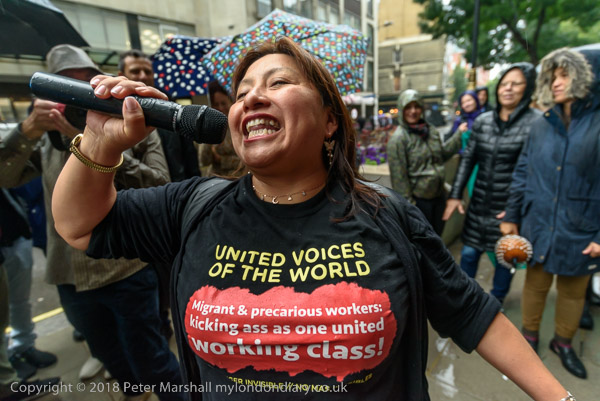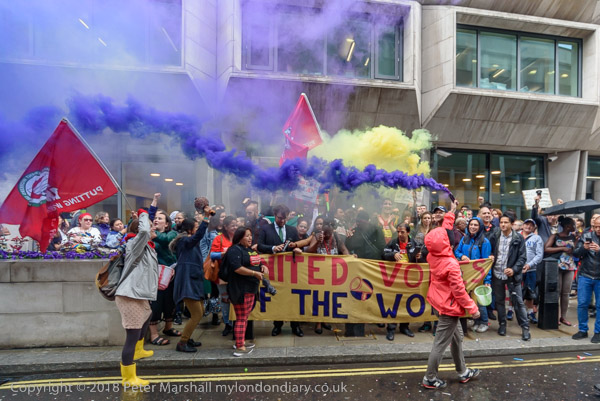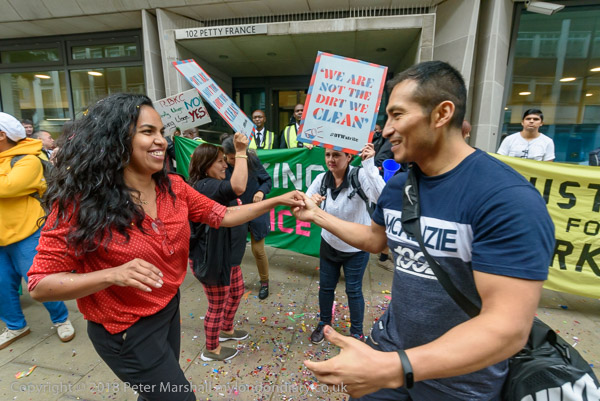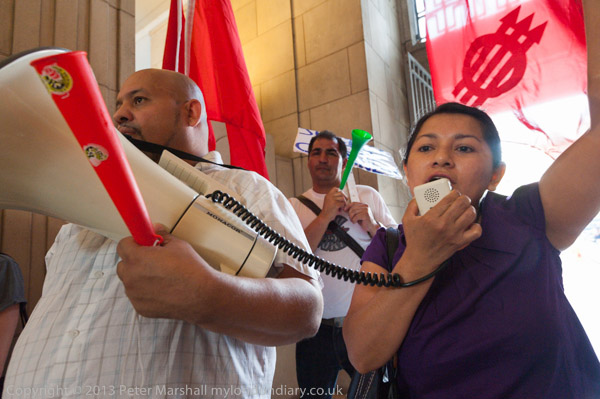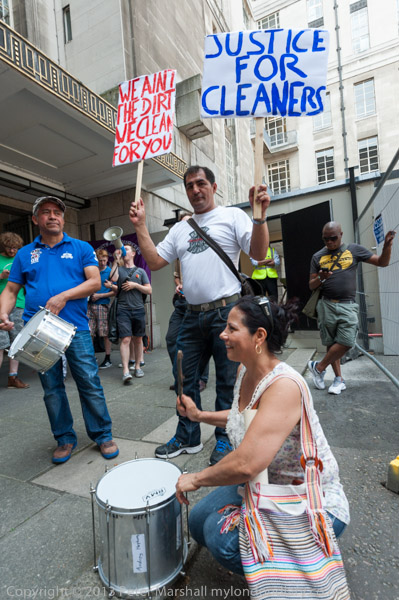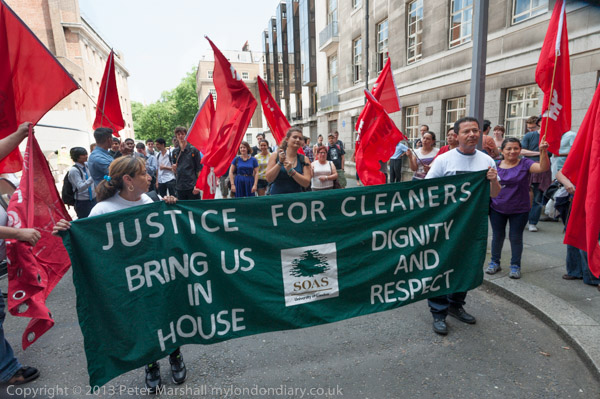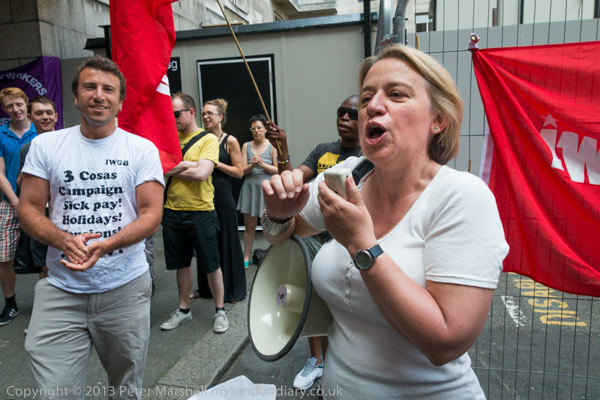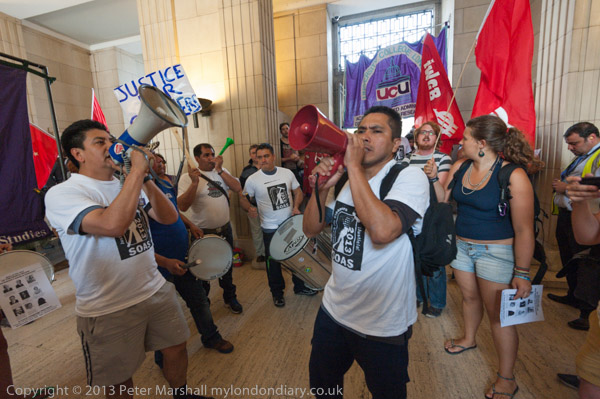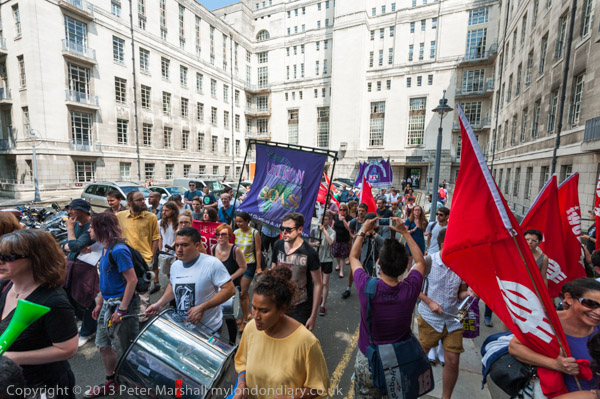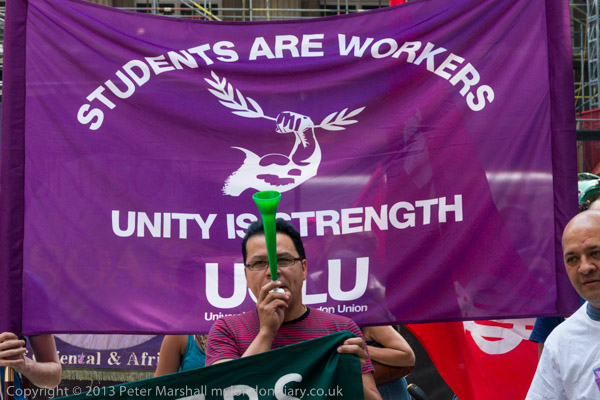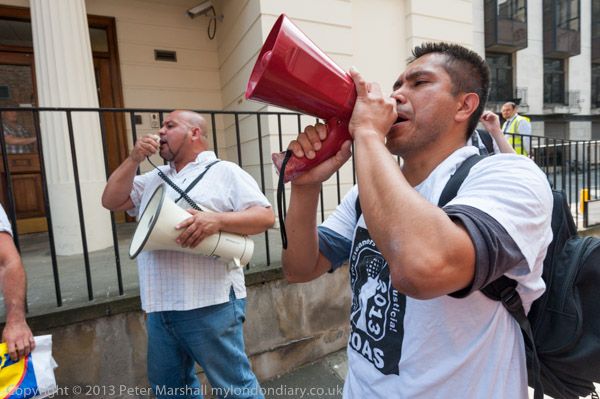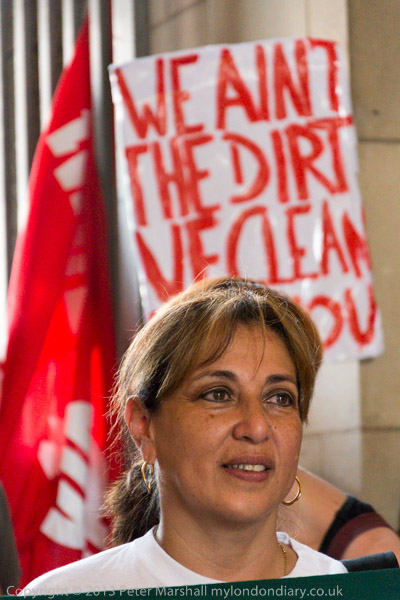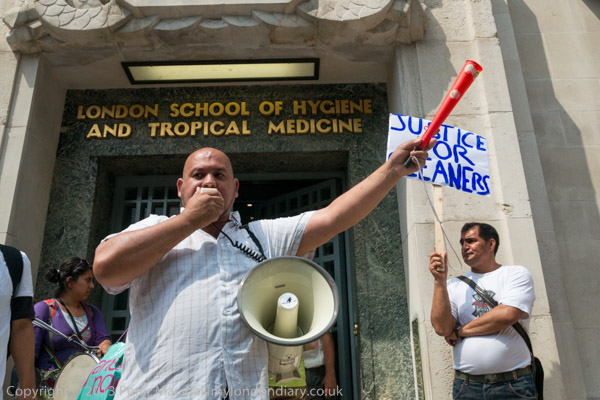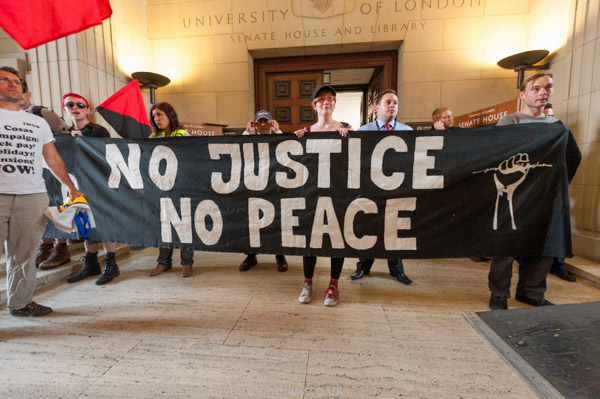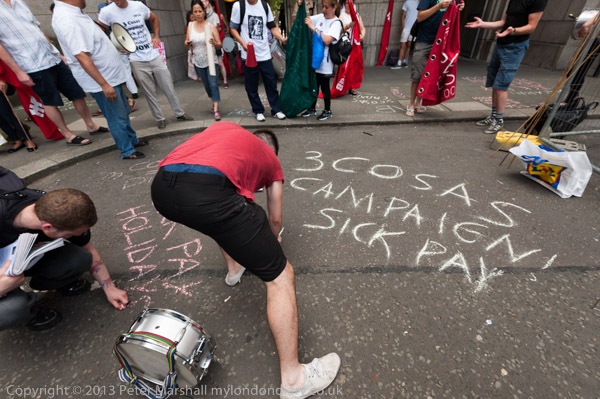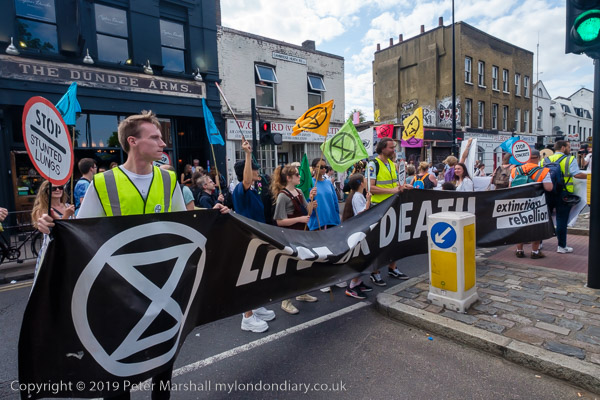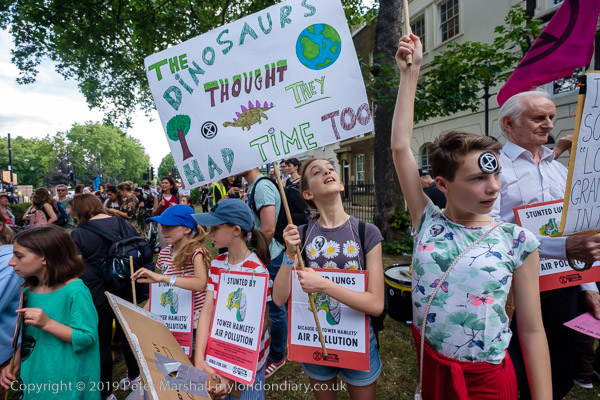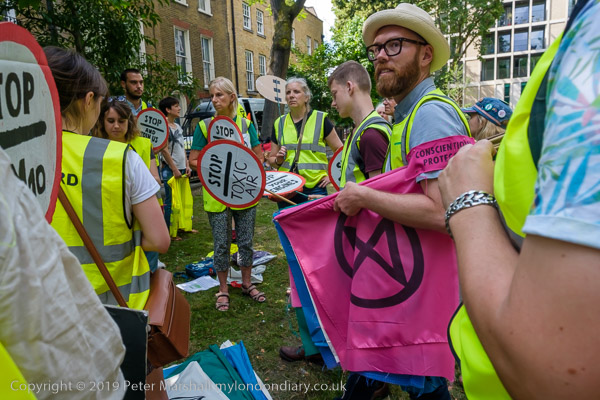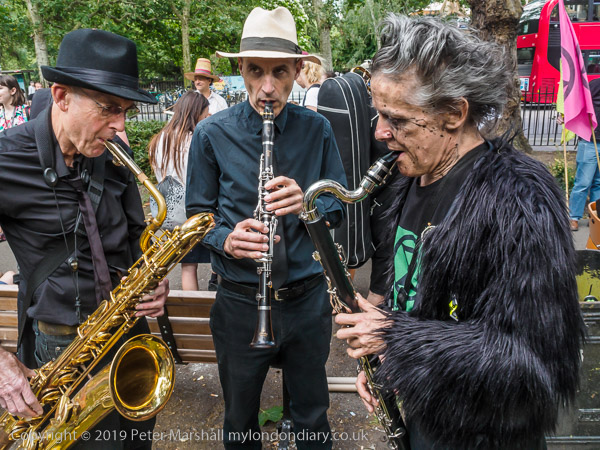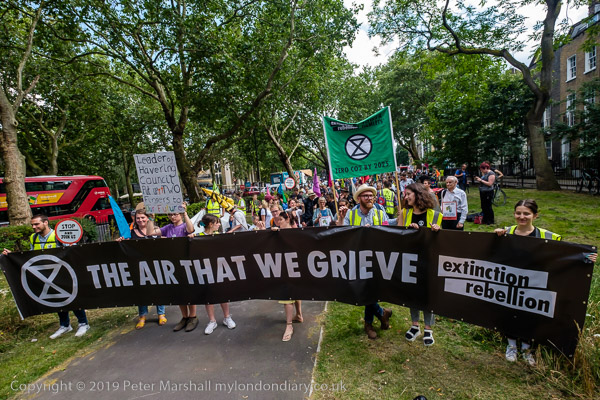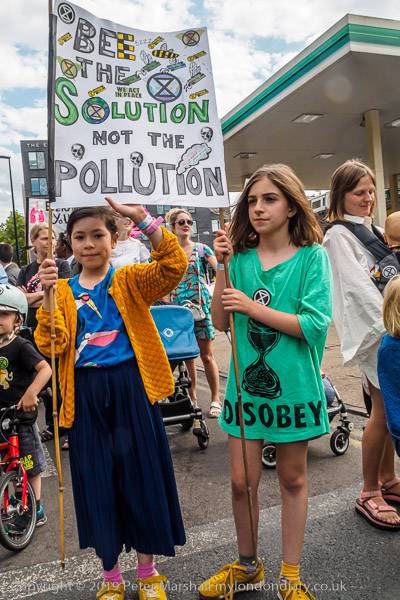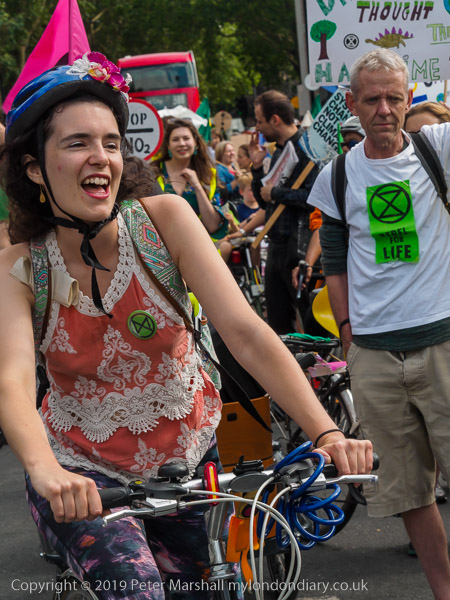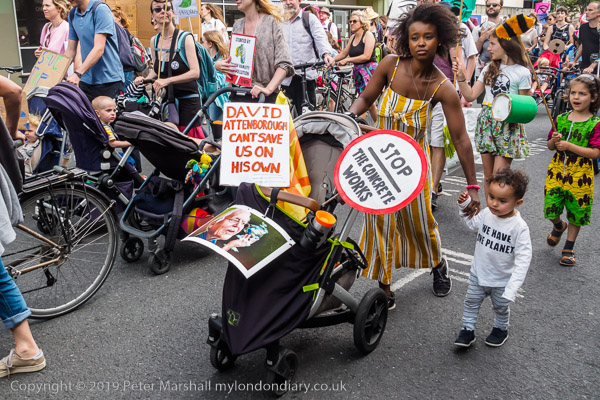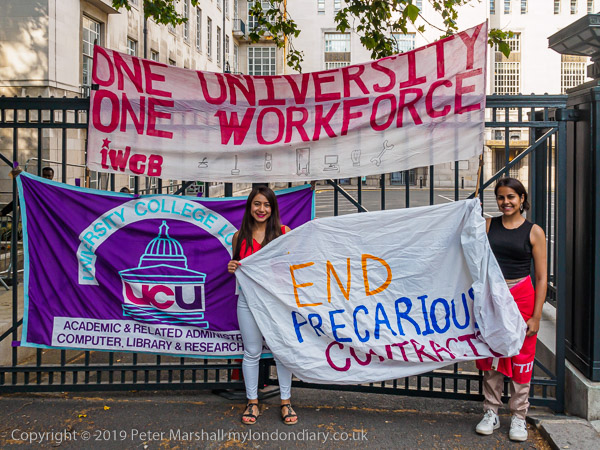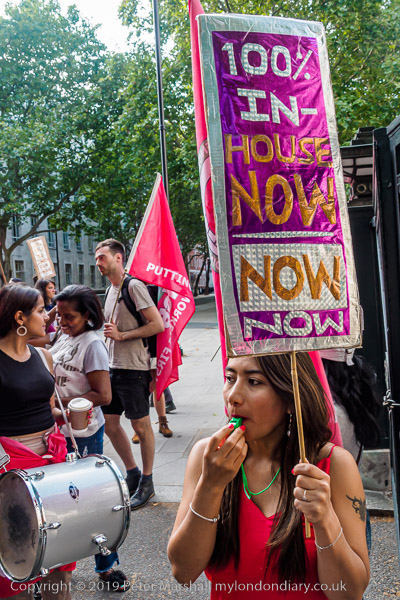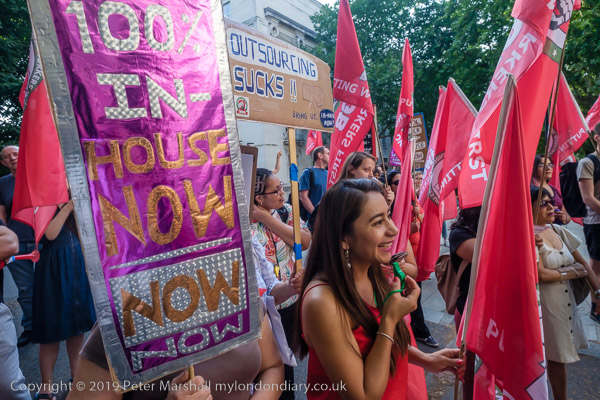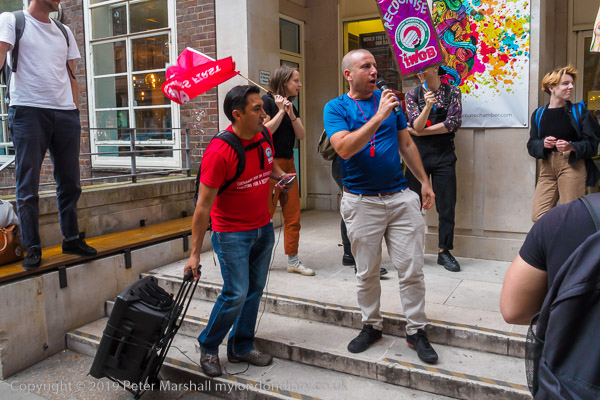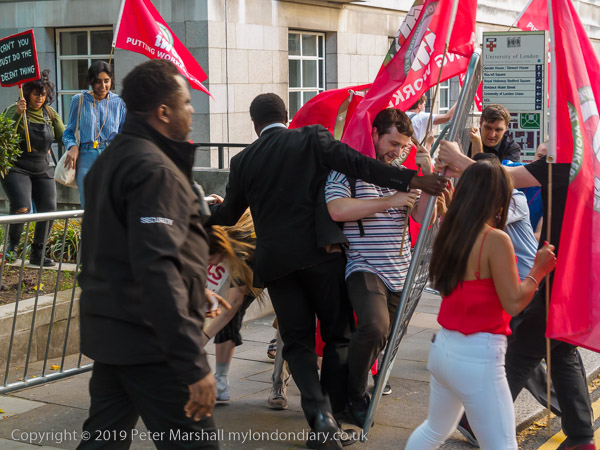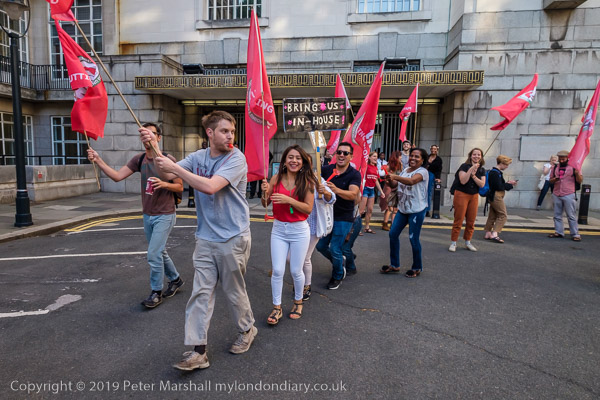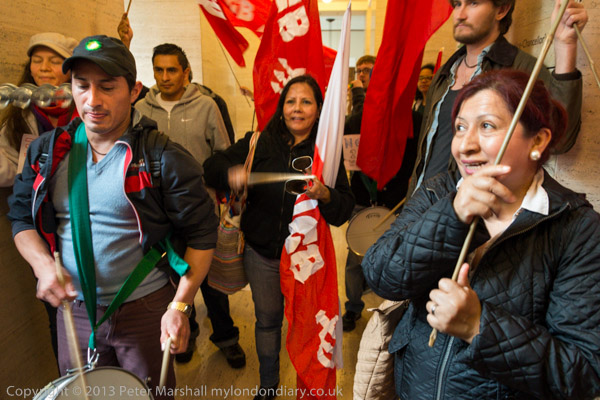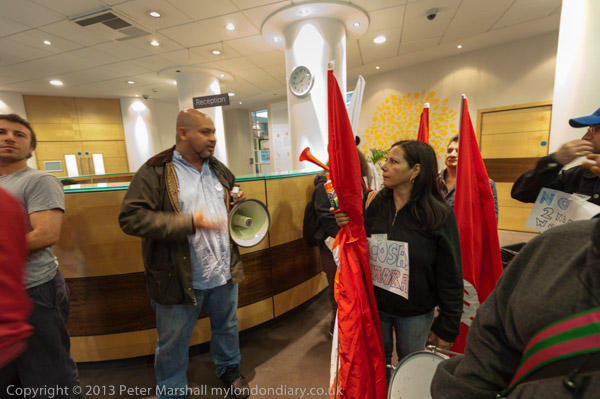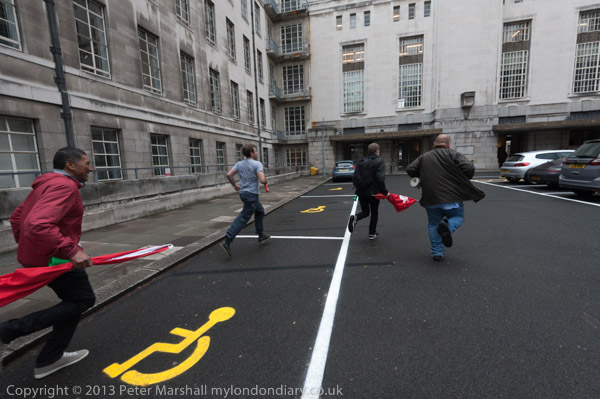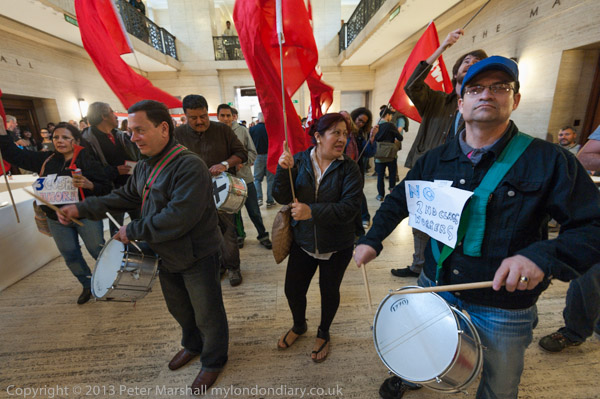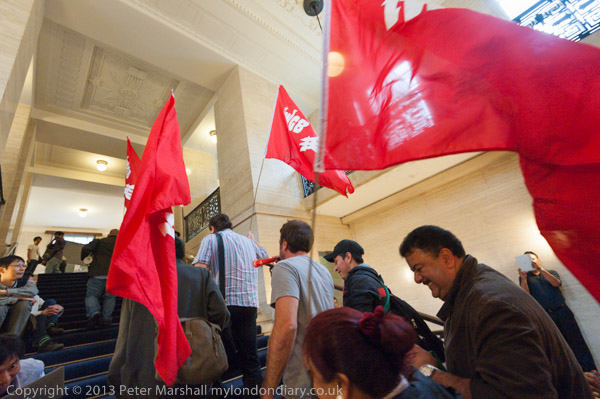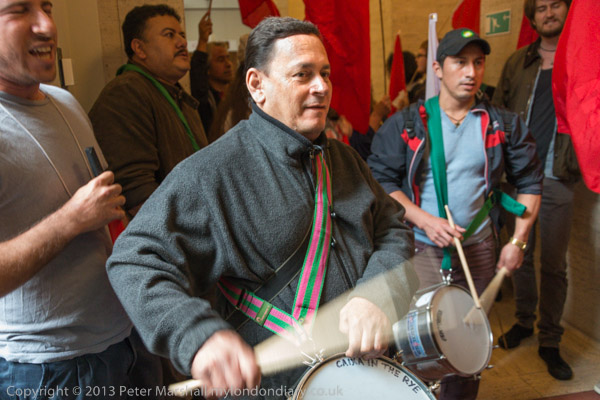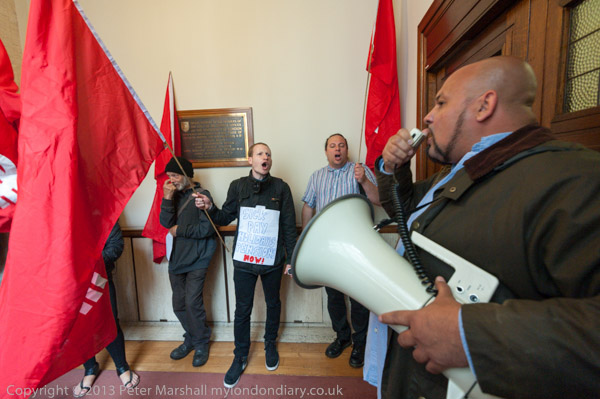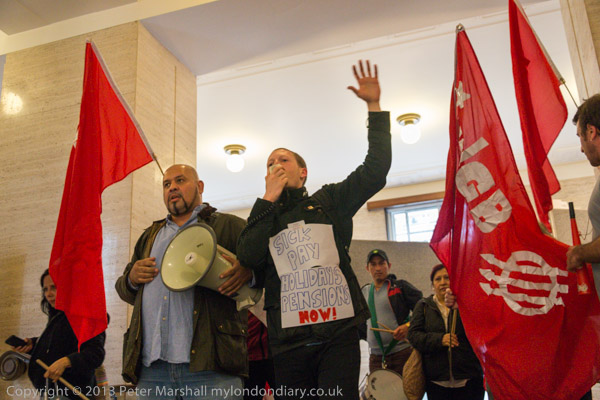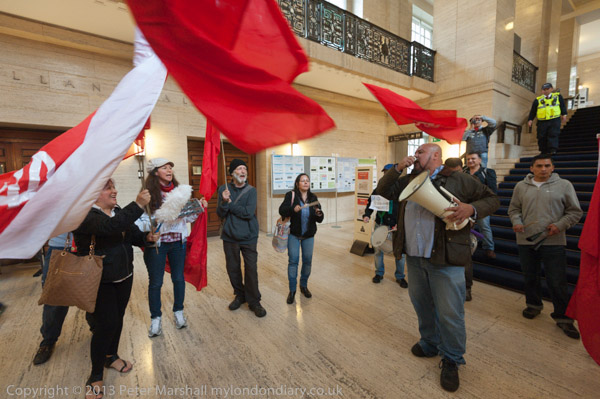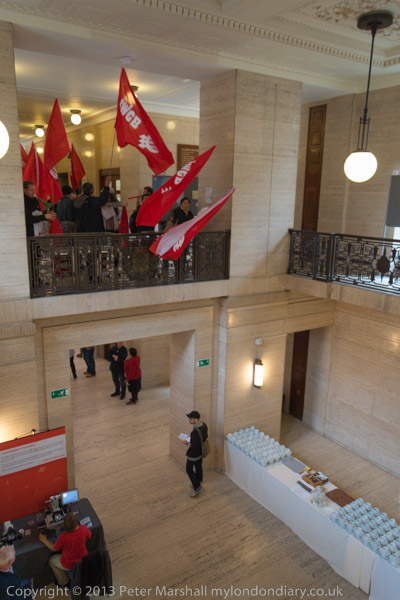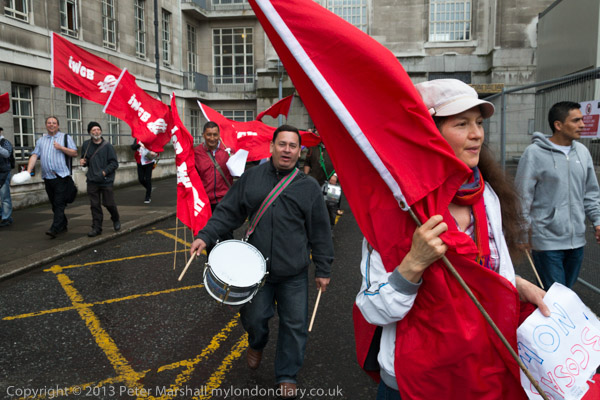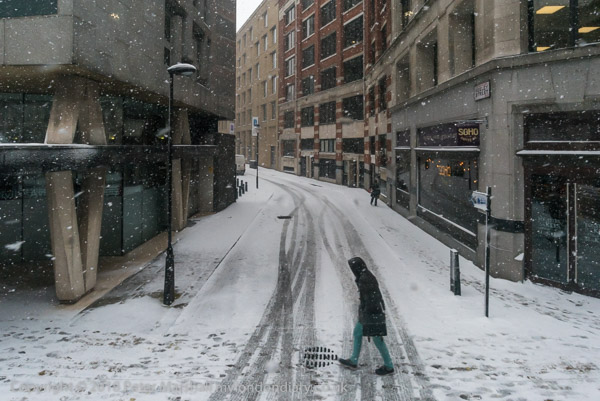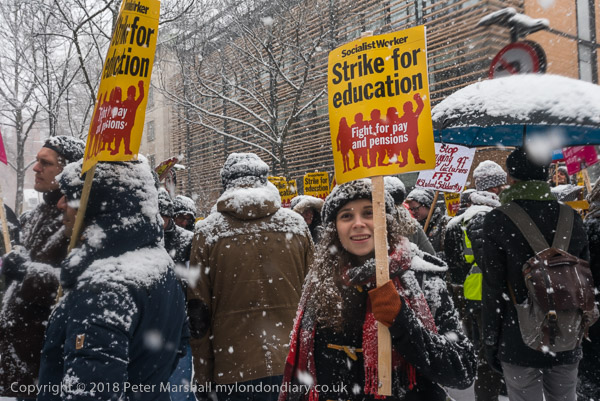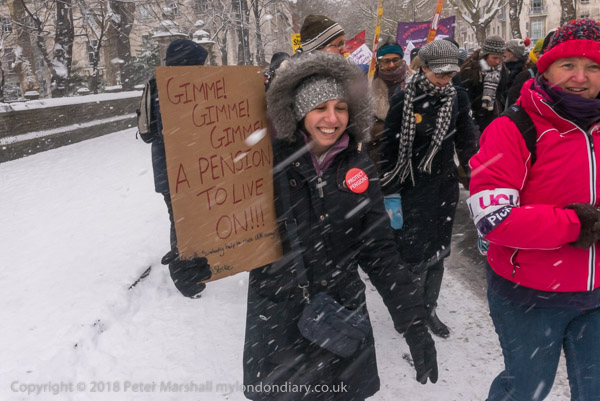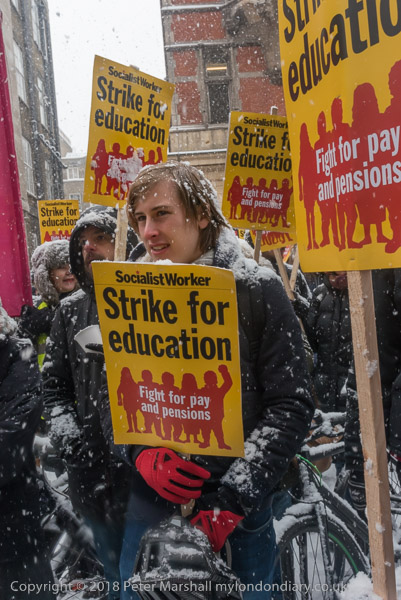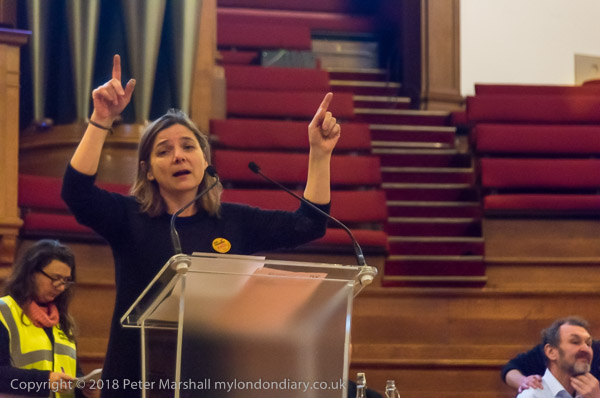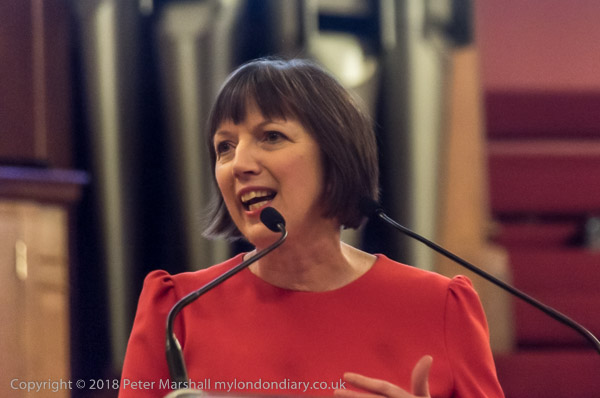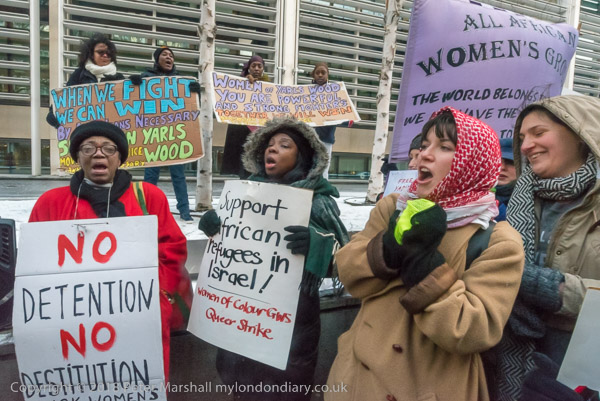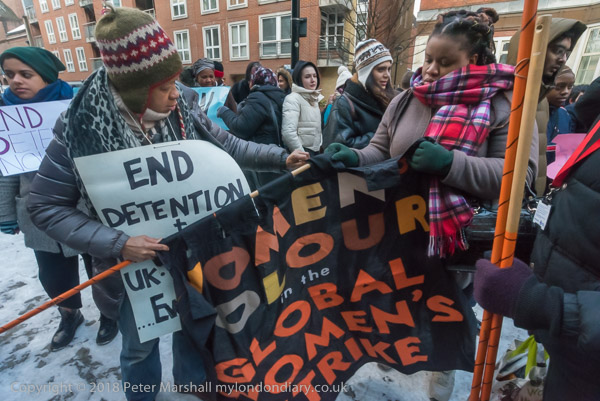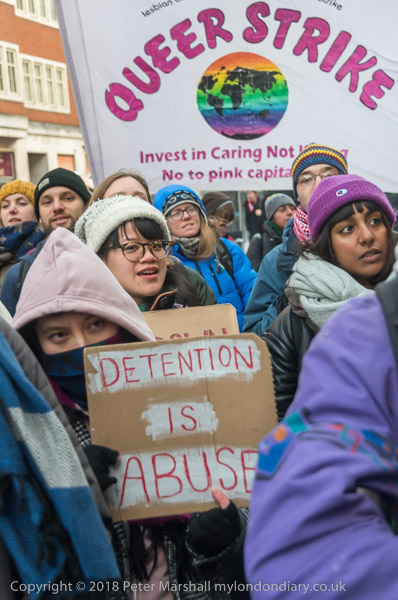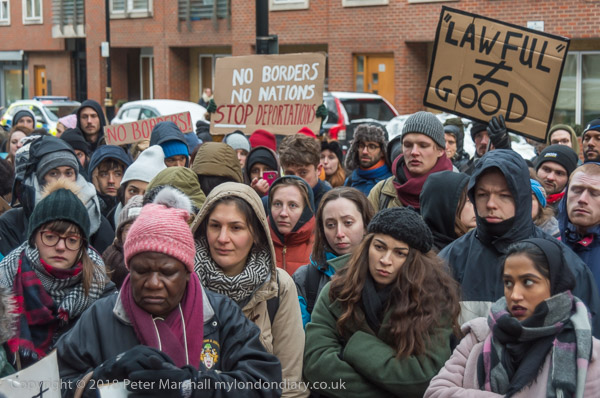On Wednesday 31st March 2010 I reported on three unrelated protests in London.
Ford/Visteon Workers March For Pension Justice
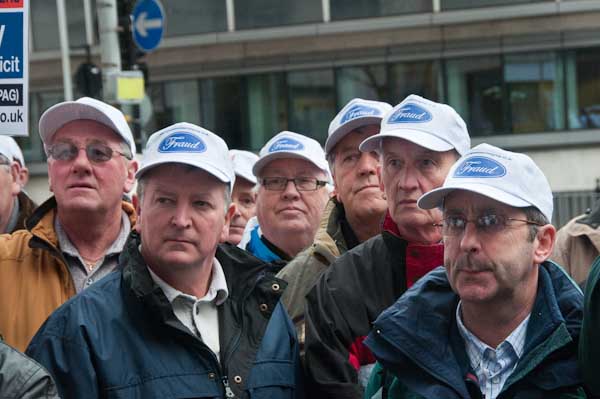
In 2000 Ford when split of some of its parts factories to Visteon, a company described as ‘An Enterprise of Ford Motor Company’ and initially with the same shareholders, promising the workers their conditions and pensions would remain exactly the same as they had been with Ford. Ford’s assurances were repeated by Visteon.
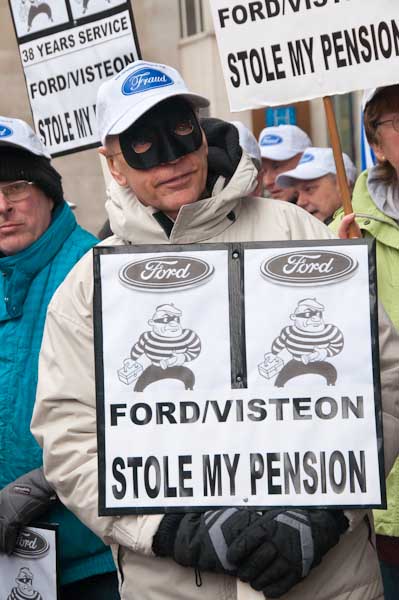
But in 2009 Visteon closed down and workers in their factories in Belfast, Enfield, Swansea and Basildon were given just six minutes to leave the sites. In Belfast and Enfield workers refused and occupied the sites for a month, but were let down by their union, Unite who failed to give them support. The occupations eventually forced Visteon/Ford to pay the redundancy pay they were entitled to under their agreements, but pensions were not covered and they only received the lesser amounts covered by Pension Protection Fund compensation.
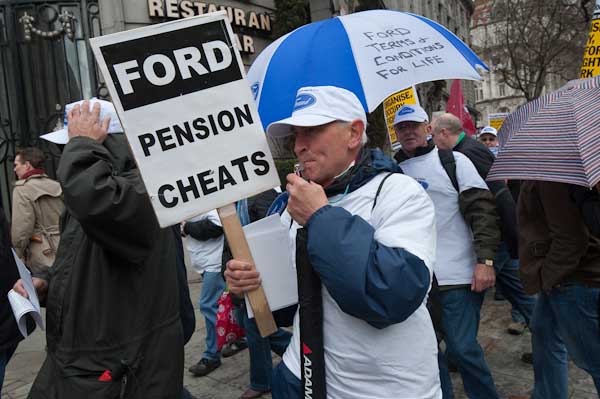
Since then their fight for the pensions they were promised has continued. I met around 500 former Visteon workers outside the Unite Offices in Theobalds Road, Holborn, where many wore hats and t-shirts with the Ford logo, but with the name replaced by the word ‘Fraud’, which succinctly expressed their view of the company’s action.
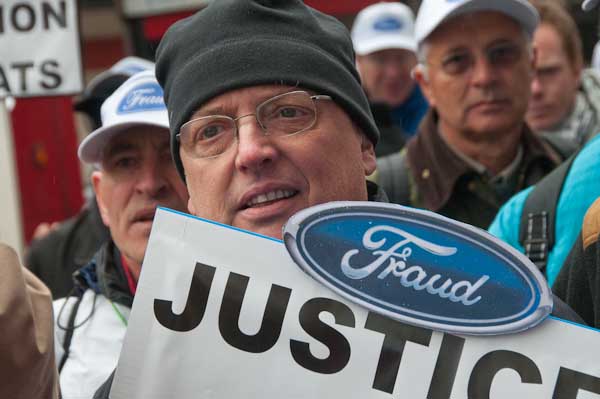
I marched with them to Downing Street where they had problems in delivering a letter and petition. As I commented then: “it does now seem unnecessarily complicated and difficult to get access to our elected government, hiding away behind their tall gates and high security. Its both an expression of and doubtless fuels their paranoia over terrorism far in excess of the real threat.”
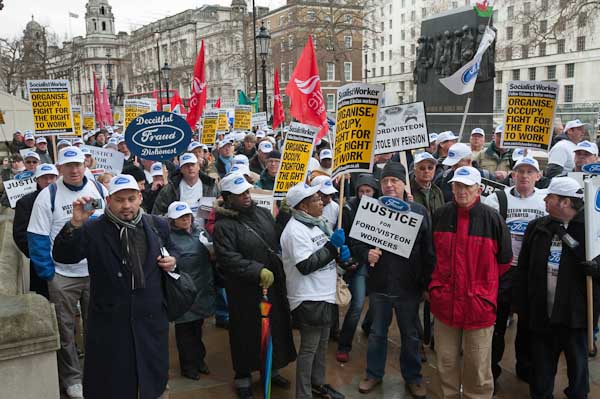
The marchers then went on to a rally in Parliament Square.
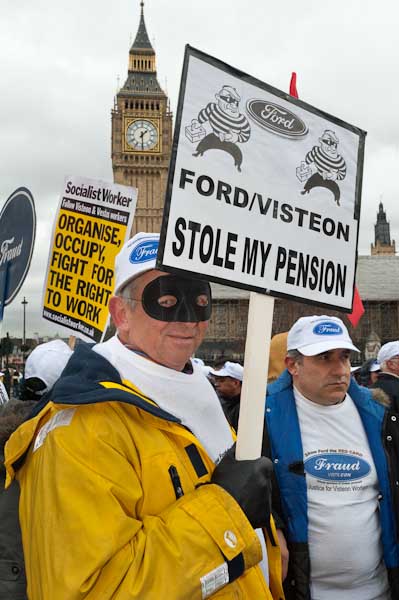
Their fight for a fair deal over their pensions went on for another four years, when eventually as the case was about to go to the High Court, Ford agreed to top up the Pension Protection Fund compensation so that they would receive the full value of benefits accrued when working for Ford. It didn’t cover the nine years they had worked for Visteon, but Unite recommended acceptance as it would settle the claim without the expense (and possible failure) of a court hearing.
Ford/Visteon March For Pension Justice
Ethiopians Protest Bloodthirsty Tyrant – Downing St
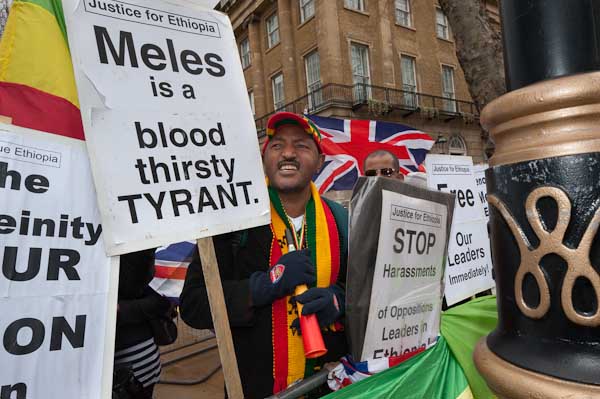
Ethiopians came from across the UK to for a day of demonstration opposite Downing St where Prime Minister Meles Zenawi was co-chairing the UN climate finance group. They demanded the UK stop appeasing the Ethiopian dictator, and calling for the release of opposition leader Birtukan Mideksa and other political prisoners in Ethiopia.
Zenawi who became chair of one of the leading military groups fighting in the Ethiopian Civil War was the leader of a coalition that took power in 1991, becoming President then and was Prime Minister from 1995 until is death in 2012. His control of the military made Ethiopia an effective one-party state.
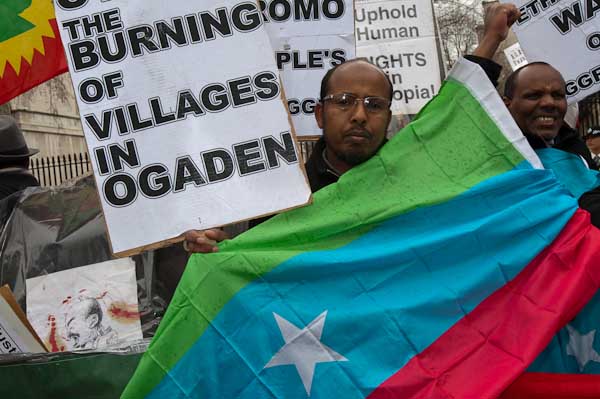
Although the country formally has democratic organisation and elections, elections have been rigged and oppostion politicians jailed, notably the leader of the main opposition Unity for Democracy and Justice (UDJ) party, Mideksa (or Midekssa), a former judge. Many other politicians and journalists have also been jailed and in 2007 the Committee to Protect Journalists (CPJ) named the country as “the world’s worst backslider on press freedom over the previous five years.”
Human rights violations and corruption are rife in Ethiopia, and food aid, education and jobs all depend on membership of the ruling party. His opponents regard Zenawi as a bloodthirsty tyrant and call for him to be brought to trial at the ICC at The Hague on charges of genocide. Human Rights Watch (HRW) have accused it of war crimes in the Somali regions of Ethiopia and against the Anauk communities in Gambella in 2003-4. Human rights abuses have continued in Ethiopia since Zenawi’s death.
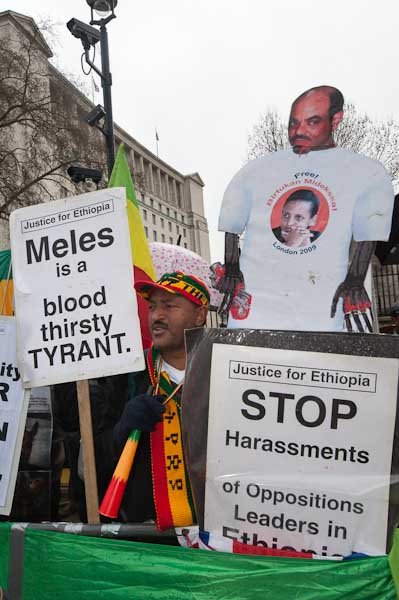
Ethiopia is one of the larger countries in Africa and has received large amounts of development aid and humanitarian support from the USA and the UK.
Ethiopians Protest Bloodthirsty Tyrant
Rioters United! 20 Years Since the Poll Tax Riots – Trafalgar Square,
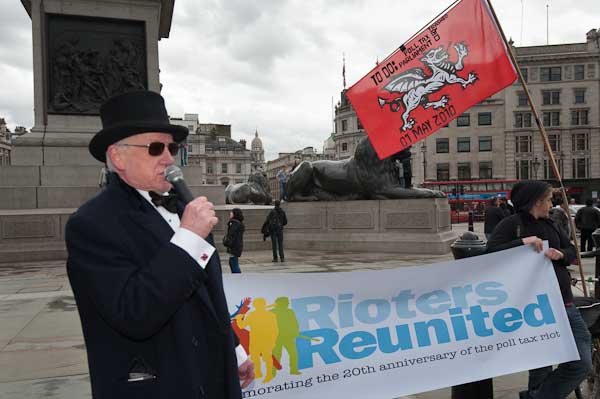
The largest protest against Margaret Thatcher’s Poll Tax was in central London on Saturday 31 March 1990, shortly before the tax was due to come into force. Unfortunately I had missed that event, probably deciding it was best to keep out of trouble. Back in 1990 I was photographing relatively few protests, mainly concentrating on urban landscapes and culture.
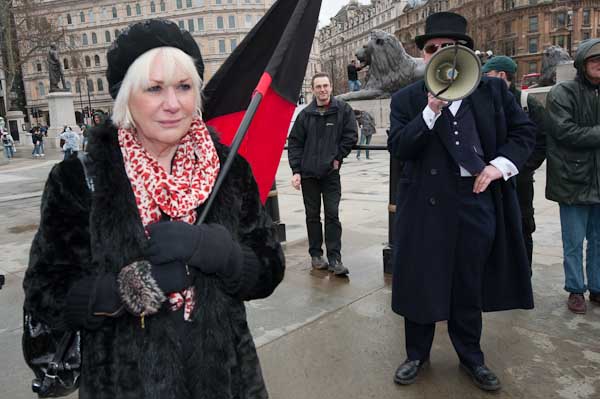
Around 30 people turned up for a rally to commemorate the occasion when “the London mob who brought Thatcher down … as well as to promise that the mob were still in business and to pronounce sentence on politicians.”
The ‘Carnival of Death‘ they were promising was not of course a literal death threat, but street theatre in which the effigies of George Brown, David Cameron, Nick Clegg and Nick Griffin were to be executed at a May Day Party. As Chris Knight reminded the gathering, “the only good politician, the only honest politician is a dead politician.”
Our police often fail to understand the difference between rhetoric and reality, and protests involving anarchist groups such as Class War are often ridiculously over-policed, sometimes with disastrous consequences, but almost always provoking more violence than they prevent. On April 1st 2009 for the G20 – Financial Fools Day they had turned up with squads of riot police psyched up to batter largely innocent and joyful protesters – and one of the police killed a newspaper seller simply walking home through the area.
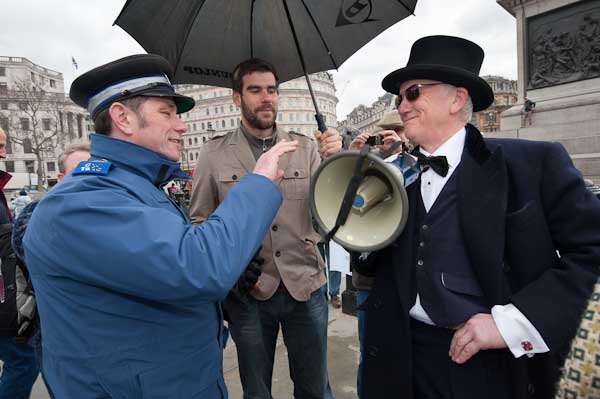
So in my account of this event in Trafalgar Square I was at pains to tell them that the ‘Carnival Of Death’ was “called a carnival; if you want to take part, come ready to dance.”
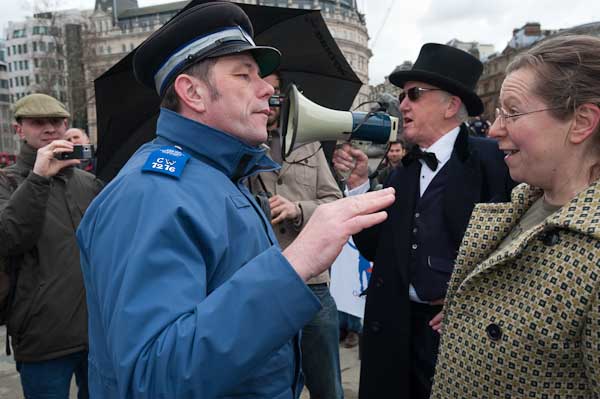
Shortly after people began the commemoration, a PCSO came to tell those taking part they were not allowed to hold protests or other events in Trafalgar Square without permission. When he was laughed at, he brought over a Heritage Warden who told us the Square was the property of the GLA (Greater London Authority), and that permission was needed for events.
“Fine” said those present. “The GLA is a public body; we own it, this is a public place and we give ourselves permission and intend to continue.” As I pointed out in my account, Trafalgar Square is not just a public place, but one that since its building in the 1830s has been a traditional place for demonstrating radical dissent. It was a tradition that those present were determined to continue.
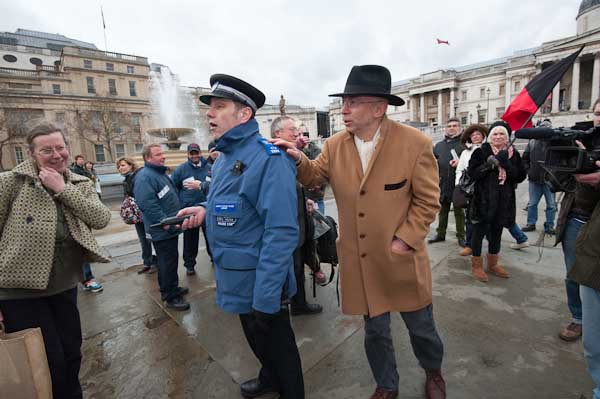
Fortunately the dozen or so police who arrived shortly after the PCSO had phoned to call for reinforcement simply stood and watched and had enough sense not to try and stop the commemoration, which ended after around 30 minutes when the organisers decided it was time to go down the pub.
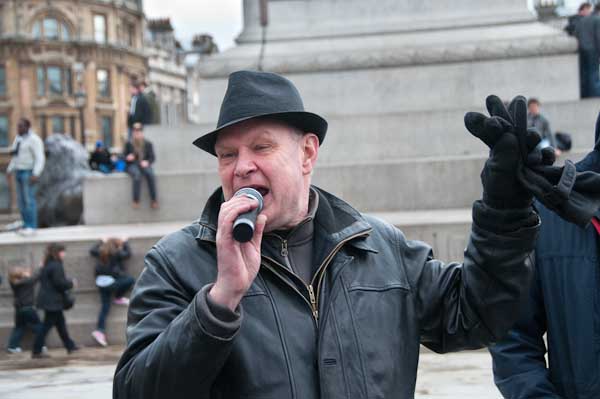
At the end of the event, copies of an anti-Election manifesto and a suitably defaced poster showing the leaders of the Labour, Conservative, Liberal Democrat and BNP leaders were distributed by the Whitechapel Anarchist Group. They advised us to “Use your cross wisely”, under a picture of the four leaders in the cross-hairs of a gun sight, and attached to the bottom was a ‘Free Gift’ – a safety match, with the message ” Burn Your Ballot”.
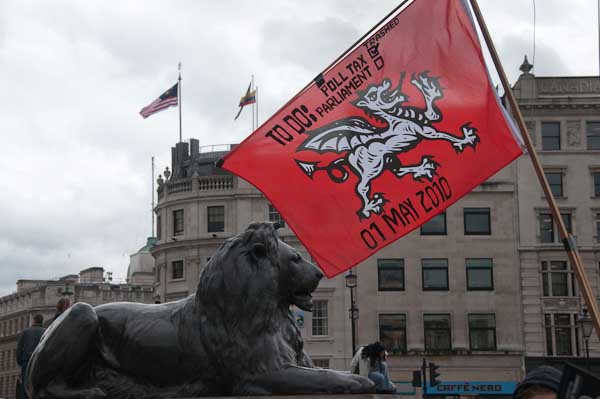
As they wrote: “It’s time to end the unjust, corrupt system of terror and build a fair, equal society that will benefit the majority. We all know voting doesn’t change anything and our collective apathy allows this folly to continue. It’s time for REAL change. It’s time for revolution.”
Rioters United! celebrate Poll Tax Riots
